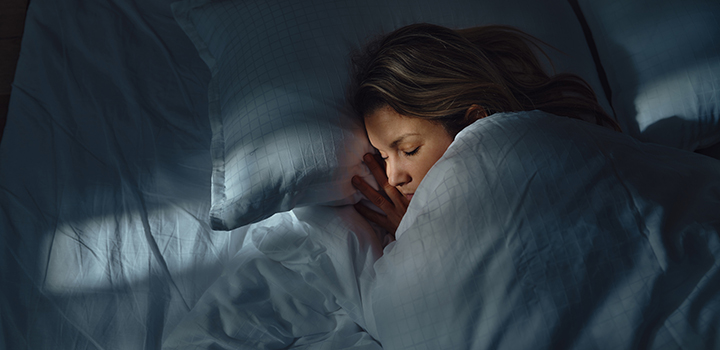UEA Sleep Lab open day this Friday
By: Communications

Researchers at the University of East Anglia will be throwing open the doors of their Sleep and Brain Research Unit to celebrate World Sleep Day this Friday, March 17.
Volunteers spending a night in the unit can expect to stay in a modern hotel-like en-suite room. But instead of a relaxing break – their every move will be overlooked by a team of sleep specialists.
As well as tours of the lab, members of the public will also be able to find out about more about sleep research going on at UEA in a series of free talks.
From the links between sleep and healthy ageing to how a good night’s sleep could improve your mental health and memory – the sessions will cover a range of topics from UEA’s leading sleep researchers.
Dr Alpar Lazar, from UEA’s School of Health Sciences and head of UEA’s Sleep and Brain Research Unit, said: “Sleep is essential for human life and poor sleep can have negative effects on our health.
“For World Sleep Day this Friday, we will be opening up our Sleep and Brain Research Unit, and members of the public will be able to have a look round and find out how we measure sleep and cognition in our research.
“We will also have a series of talks from sleep researchers across different departments covering many aspects of the sleep research happening at UEA, including the links between sleep and gut health, child development, learning and memory, emotional wellbeing and healthy aging.”
Sleep lab tours will take place from 12 noon – 2pm followed by talks until 4pm.
The event is free but places must be booked online. Book your free ticket to the Sleep and Brain Research Unit Open Day.
Members of the public may also watch the talks virtually online. Please contact HSC.News@uea.ac.uk for the online link.
Lasdun lecture
Don’t miss Dr Alpar Lazar and Dr Jo Bower present a public lecture at the Royal Institution in London on May 4 on the significance of sleep for health and wellbeing.
Our lives are characterised by recurring daily cycles of sleep and wakefulness. Sleep has been shown to have a major impact on the human brain and the body. This public lecture will explore whether our nightly sleep could be the token for a long and healthy life.
Related Articles

Plans submitted for a new high-tech anatomy centre at UEA
Plans have been submitted by the University of East Anglia for a new future-proofed anatomy suite to be built as an extension to the Edith Cavell Building on Norwich Research Park, following extensive feasibility studies and a successful grant application
Read more
UEA teams up with Age UK Norwich to tackle dangerous dehydration in older people
Experts from the University of East Anglia (UEA) and Age UK Norwich have teamed up to tackle dehydration in later life, producing new resources aimed at older people and professionals.
Read more
Nurses worldwide rely on intuition to triage patients
Nurses around the world use intuition to work out how sick a patient is before triaging for treatment according to new research from the University of East Anglia.
Read more